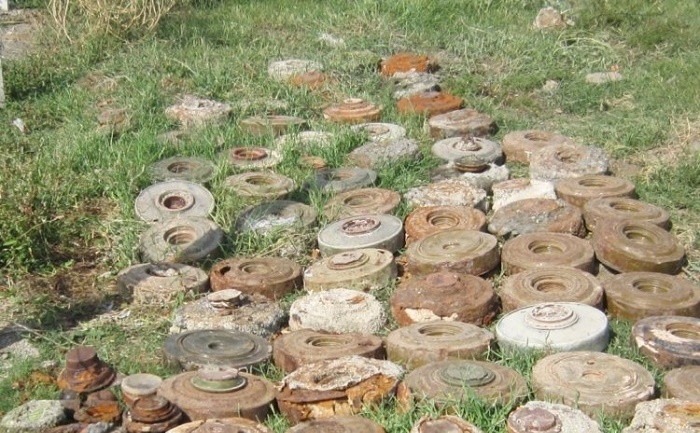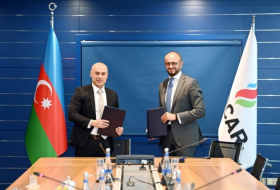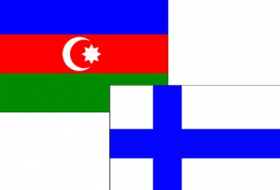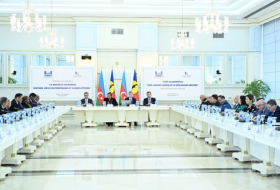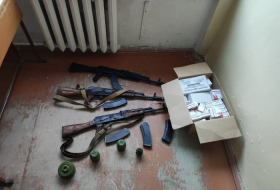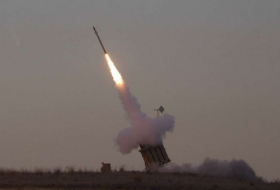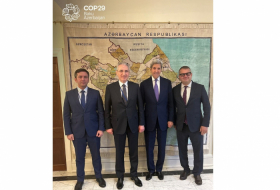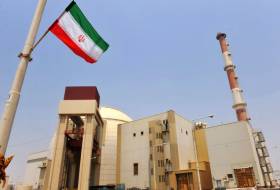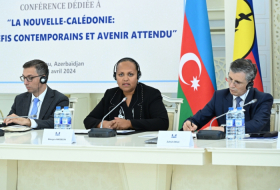The Armenian government stubbornly refuses to indicate the ‘location of the mines with which it has strewn the ground, the roads, the monuments, and even the cemeteries in Azerbaijani liberated lands, article published by Musulmans en France says.
Employees of Azerbaijan's AzTV channel and AZERTAC news agency were killed as a result of the mine explosion in Kalbajar district, a source in AZTV said on June 4.
AzTV channel’s cameraman Siraj Abishov, born in 1989, and the agency's employee Maharram Ibrahimov, born in 1982, was killed in a mine explosion while on duty.
The article quoted Frédérique Dumas, Member of French Parliament, and member of the Foreign Affairs and European Affairs Commission, as saying "France and the international community must require Armenia to communicate the map of the location of the mines in the territories where they were installed. Civilians cannot be held hostages in conflicts. International law must be respected by all parties as only way to find peace".
However, the article said, despite the tripartite agreement signed on November 10, 2020 between Russia, Azerbaijan and Armenia, which puts an end to the conflict in Nagorno-Karabakh and the adjacent regions, the Armenian government stubbornly refuses to indicate the ‘location of the mines with which it has strewn the ground, the roads, the monuments, and even the cemeteries.
"This attitude deliberately violates international law and the most basic humanitarian principles, in particular the Geneva Convention of 12 August 1949 on the protection of victims of war, as well as the Second Protocol of the Convention, revised in 1996, on the prohibition or the restriction of the use of certain types of conventional weapons considered to be capable of causing losses to civilian populations," the article said.
Armenia is also violating the provisions of the 1999 United Nations Convention on the Prohibition of the Use, Stockpiling, Production and Transfer of Anti-Personnel Mines,the article added.
As the french senators recalled in their report of the national commission for the elimination of anti-personnel mines: "France has greatly contributed to bringing the debate on anti-personnel mines to international forums. It was she who, in application of a provision of the Geneva Convention of 1980, asked the Secretary-General of the United Nations in 1993 to convene a Review Conference for the revision of Protocol II, in order to remedy its shortcomings. For France, it was a question of extending the scope of application of the protocol to non-international armed conflicts, of strengthening the prescriptions prohibiting or limiting the use of certain mines and of remedying the absence of measures relating to transfers and international verification. Through its diplomatic action and its participation in international assistance, France has always been at the forefront of the fight against anti-personnel mines. Accession to the Convention imposes new obligations on it, mainly in the area of employment, which it intends to quickly comply with. "
"These mines have already killed more than 20 people since the end of the conflict. How many more victims should we expect before France which, let us remember it, co-chairs the OSCE Minsk Group, reacts and takes the necessary measures so that the Armenian government finally respects the law? It is for the safety of everyone, the Armenian people as well as the Azerbaijani people," the article concluded.
More about:








